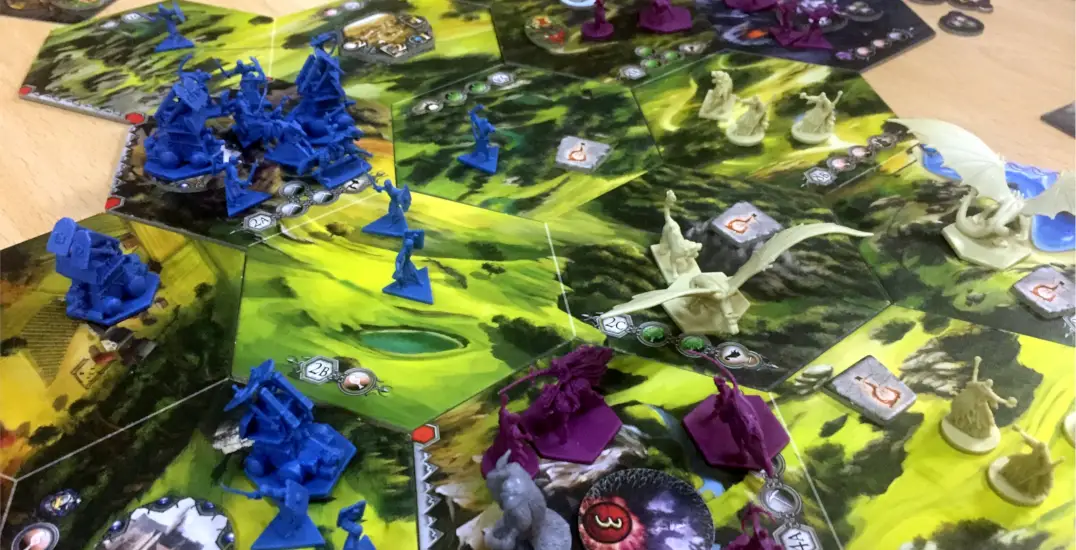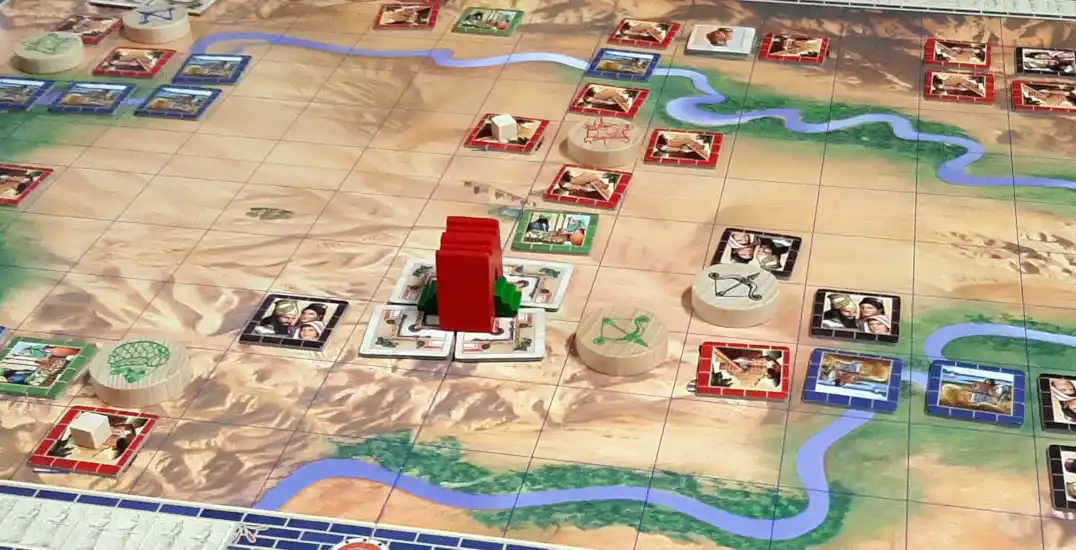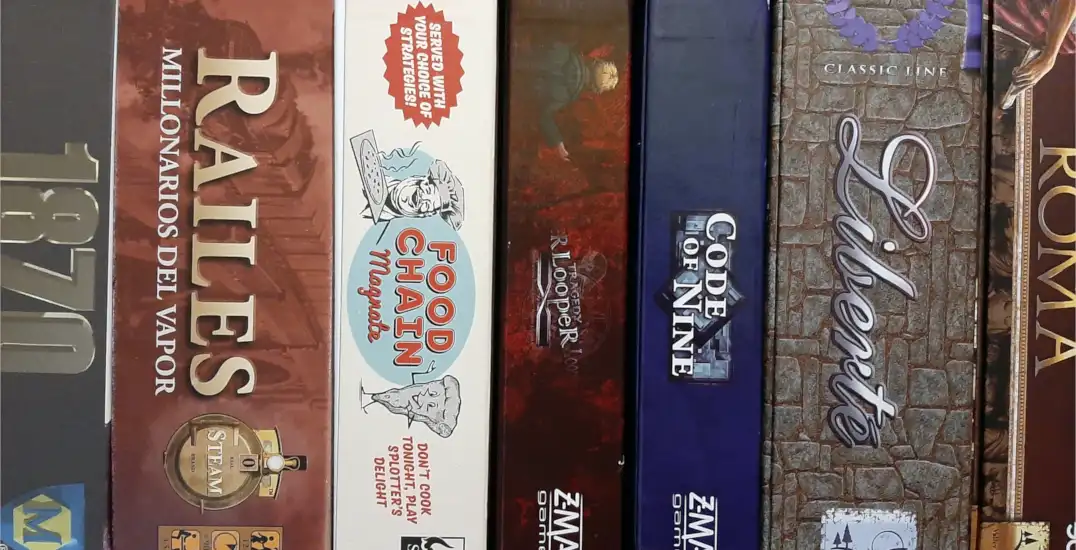 Games are an interactive art form. Our actions as players shape the resulting experience to the same degree, if not more, than the game mechanics, the level design or the developer’s vision. This puts us in a position where the effort we put into a game has a direct impact on how much we enjoy it. And yet, we often forget about how not putting in that effort can worsen our game sessions.
Games are an interactive art form. Our actions as players shape the resulting experience to the same degree, if not more, than the game mechanics, the level design or the developer’s vision. This puts us in a position where the effort we put into a game has a direct impact on how much we enjoy it. And yet, we often forget about how not putting in that effort can worsen our game sessions.
When we discuss the cost of playing a game, we often think of its price. At best, we might think of how much time it takes or how many people we need to play it. But games require more effort than that. We may need to play with skill, to endure repeated losses or even exercise our patience. Even our own sense of humour can be a strong factor in how much we enjoy a game.
This is not exclusive to our hobby, of course. But a movie won’t catch fire in the projector if we get some details wrong. On the other hand, I’ve seen great games fly off the rails because we misunderstood one tiny rule or someone held a grudge for too long. We even determine for how long they last! If we are too slow, even the littlest game can take hours.
This is the case with Cosmic Encounter. It’s a fantastic title yet many report having an awful time with it. It’s a chaotic, highly social game, combining bluffing, negotiation and hand management. That’s fun but some players find it difficult to wrap their heads around these features. It’s such a strong effect, I had to write a guide on how to have a great first experience with Cosmic and another explaining why allying with everyone can ruin the whole game.
EFFORT AND OPPORTUNITY
The effort we spend playing doubles as an opportunity. Victories are more meaningful if they come with the risk of defeat. Being betrayed may test our composure, but it also gives us the chance to respond in kind. Solving puzzles, exploring, learning and spending time with others is both a cost and the key that opens up new experiences.
 Think about depth. We all seek games with meaningful decisions and strategies that are as fun to discover as to execute. Yet, we don’t always take the necessary steps to enjoy them. In order to appreciate depth we must put in repeated plays. A board game that is only played once or twice might as well not be deep at all because we’ll never see that part of it.
Think about depth. We all seek games with meaningful decisions and strategies that are as fun to discover as to execute. Yet, we don’t always take the necessary steps to enjoy them. In order to appreciate depth we must put in repeated plays. A board game that is only played once or twice might as well not be deep at all because we’ll never see that part of it.
Designers are aware of how scarce repeated play has become. Hence, their games are increasingly focused on making a positive first impression at the cost of longevity. Lost Ruins of Arnak is an example of it. Why spend effort on something that won’t be appreciated? Dune, Food Chain Magnate, Sherlock Holmes Consulting Detective, even video games such as Street Fighter won’t be enjoyed under those circumstances. Why create games like them, then?
That’s just one example. Gaming is full of other similar, self-imposed limits. Many entrenched hobbyists refuse games longer than a couple of hours, that require learning new skills or that demand them to manage their interactions with others. And while these limitations may not be extreme, they put most great titles completely out of reach.
This is not to say that putting in more effort is always better. Many titles place unnecessary workloads on the player. Grinding, pixel hunts, overcomplicated rules and even needless memorization can be part of it. What is and isn’t worth the effort is, of course, highly personal. However, merely thinking about where our limits lie and what we can do to overcome them can lead to better gaming experiences.
GAMING IS OUR CHOICE
Ultimately, we must be honest with ourselves. We often fall prey to a magical kind of thinking where one day we’ll wake up and a great gaming experience will materialize out of thin air. We believe that if we just only buy the right game, we’ll have fun, even if the last time we tried our flagship purchase went unplayed. If we want to enjoy games to the fullest, we must take responsibility for our own play experience. If we don’t take games seriously, get upset when losing or give up at the first opportunity, that’s going to have consequences. We must decide for ourselves what kind of effort we want to put in and accept that’s going to limit us on some level. Reaching an equilibrium between cost and the quality of the experience is a choice we must make.
If we don’t take games seriously, get upset when losing or give up at the first opportunity, that’s going to have consequences. We must decide for ourselves what kind of effort we want to put in and accept that’s going to limit us on some level. Reaching an equilibrium between cost and the quality of the experience is a choice we must make.
Games are still at a stage where we feel game design is the solution to everything. That if games were better, cleaner and more thoughtfully constructed we wouldn’t need to choose. But no amount of design is going to save us from that. It won’t make our opponents more fun nor us better at handling frustration. That’s on us, for better or worse.
I believe in the strength of an informed choice. What do we want our experiences with games to look like? And what cost are we willing to pay to obtain those experiences? We must decide, for ourselves, and enjoy gaming as much as we can and are willing to, not as much as we fool ourselves to.




Good points! When it comes to games only designed for first impressions, I think the problem is that the following three statements can’t all be true at the same time:
1) Games are designed for repeat plays.
2) Games take multiple hours to play.
3) Game design is a viable career for more than 10 people in the world.
(Exaggerating slightly, of course.)